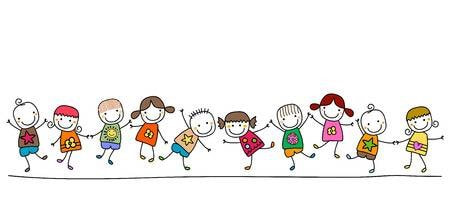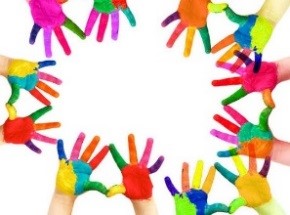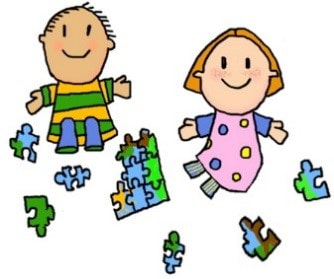Primary Intervention Project
(PIP)
What Is the Primary Intervention Project?
The program is designed to supplement the educational experience and personal development of children in
El Dorado County's Elementary Schools.
This is accomplished through early awareness of, and attention to behavioral, emotional, or learning difficulties.
The program is designed to supplement the educational experience and personal development of children in
El Dorado County's Elementary Schools.
This is accomplished through early awareness of, and attention to behavioral, emotional, or learning difficulties.
All children have social and emotional needs, and most of these needs are met through the home, school, and the play environment. Sometimes, however, a child may have needs which require additional attention. These needs may arise from a family change, such as birth, illness, divorce, move, etc. Additionally, some children may be a little shy, withdrawn, or overly active and may need help in finding new, more effective ways to express feelings in positive ways.
What Are Its Purposes?
To help children get a good start in school by providing a nurturing atmosphere that encourages a healthy self-image and positive social skills, thereby improving school adjustment and academic achievement.
The program follows eight principles and guidelines:
To help children get a good start in school by providing a nurturing atmosphere that encourages a healthy self-image and positive social skills, thereby improving school adjustment and academic achievement.
The program follows eight principles and guidelines:
- Develop a warm, friendly relationship with the child.
- Accept the child exactly as he or she is.
- Recognize and reflect the child's feelings.
- Respect the child's ability to solve his or her own problems.
- The child leads the way.
- Change is a gradual process.
- Establish only necessary limits.
Who runs the Program
Trained PIP Aides who work under the supervision of a consulting mental health supervisor. The PIP Aide provides non-directive play sessions for children that are designed to establish a positive, meaningful relationship to reduce school and any other adjustment difficulties.
Trained PIP Aides who work under the supervision of a consulting mental health supervisor. The PIP Aide provides non-directive play sessions for children that are designed to establish a positive, meaningful relationship to reduce school and any other adjustment difficulties.
How Does the Program Work?
Referrals must be made by the child's school teacher or by the child's school psychologist along with parent consent.
Each child in the program is assigned to a PIP Aide who plays with the child for 30-40 minutes once a week for about 12-14 sessions. The room is set up so that the child can have various activities including drawing, painting, play, games, etc.
Referrals must be made by the child's school teacher or by the child's school psychologist along with parent consent.
Each child in the program is assigned to a PIP Aide who plays with the child for 30-40 minutes once a week for about 12-14 sessions. The room is set up so that the child can have various activities including drawing, painting, play, games, etc.
The program provides children with the exclusive attention of a nonjudgmental, trusting adult in a safe environment at school. Through non-directive play techniques in a specially equipped room, the PIP Aide facilitates the child's self-direction, self-exploration, and self-growth. Non-directed play describes a method by which a trained professional play with the child, but let’s that child lead and be the sole decision-maker of their play time together. The adult supports the child without directing his or her choice of activities. Through self-directed play, young children are able to identify and learn to solve some of their own problems.
The Magic of Play!
Play is a child's way of communicating. It provides a means for children to express what they feel, when sometimes they may not have the words. It is a vehicle for the development of important skills. Play also helps a child learn coordination and social skills, as well as enhance their attention and concentration. It provides an avenue to build up self-esteem and increases self-confidence. Play is about learning and having fun. The goal of the Primary Intervention Project is non-direct play to recognize and reflect the child's feelings.
Support Tahoe Youth & Family Services when you shop at smile.amazon.com
© Tahoe Youth and Family Services. All rights reserved.



